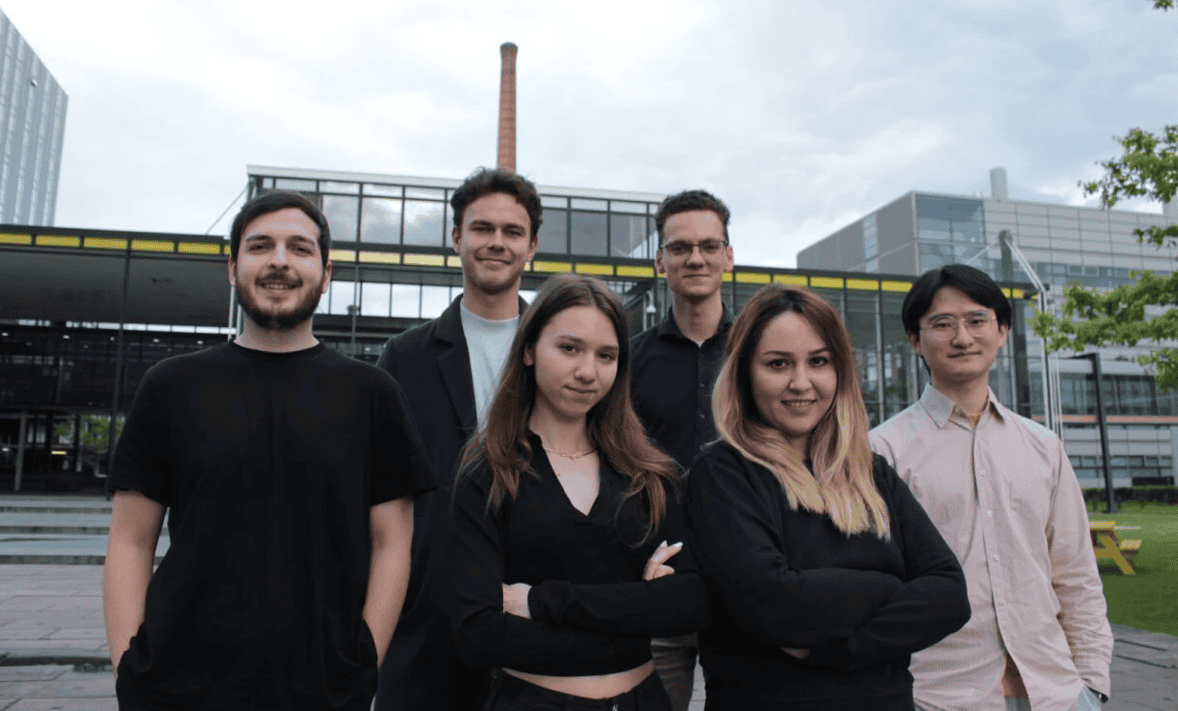
It would be great if you could read how many parking spaces are still available when you drive into a city. It would be nicer if you could drive straight on through to a parking space that has been reserved for you. This would be possible if you could process all the data from all vehicles driving into a city, any parking preferences and all the available parking spaces into one system. Amsterdam-based Peazy is offering that solution.
There is one problem, unfortunately. Under the privacy legislation, processing all that kind of personal data is not permitted. Nevertheless, there is plenty to do for Peazy. This data can be used anonymously. This way, the young company can offer valuable advice on the parking policies of large cities. But in the end, the entrepreneurs who originally started in India want to bring an app on the market that allows motorists to easily find an available parking space with the help of artificial intelligence (AI). Founder Sakyabrata Duta explains how it works to Innovation Origins.
How did Peazy get its start as a company?
The idea of founding Peazy originated in India. I’m from India myself. It turned out that people there weren’t that enthusiastic about my business idea. I came into contact with Rockstart in The Netherlands. This organization helps start-ups with gaining advice and funding. There was a positive response to our idea. We managed to get funding and that’s how we could start our business in The Netherlands back in 2017.
How did you come up with the idea for Peazy?
When I worked as a marketer in Kolkata, India, I often had to look for ages for a convenient parking space when I wanted to visit a client. A friend of mine had the same problem. That’s how we came up with the idea of finding a solution so that people are able to find a convenient parking space much quicker.

What is Peazy doing right now?
At the moment, we mainly use parking data to advise cities on how to shape their parking policy. For example, Amsterdam wants more visitors to park outside the city so as to ease the burden on the city in terms of traffic. With our parking data, we offer insight into the problem and can thereby provide advice. It may be, for example, that the municipality may decide to build a new garage to reduce the parking pressure in the city centre. A good location can be chosen thanks to our parking data. In addition, parking data can also be used to assess what the parking price does with the quantity and duration of parking sessions. So parking data can be used in many different ways when it comes to drawing up policy.
Predicting the number of available parking spaces
In the long run, Peazy wants to build in a predictive factor with its AI algorithm. If there is a performance in the city at a specific location, parking in that area will become busier. Or if it rains, people might prefer to stay at home and postpone their city trip. Obviously, this also affects the number of available parking spaces in the city. All this data can be combined with parking data. We are currently building on our experiences and trying to improve our algorithm.

Is there much competition in this area?
Yes, because there are plenty of start-ups that are trying to solve parking problems in cities in a variety of ways. Some use sensors, other start-ups use camera images or location data from phones. So there is a lot of indirect competition, since nobody does exactly what we’re doing. As in, we analyze the raw data from councils. The only other party that does the same thing that we do is based in the United States. That’s the start-up Smarking. We are active on the Dutch market in several big cities. They’re not having an impact on our company at the moment. If we were also to focus on the American market, then maybe we would notice that.
What are the main obstacles you come up against?
It is difficult to gain access to cities and be accepted as a consultant. As a result, sometimes the process of making deals is slow. We’re trying to set up our model in such a way that we’re able to scale up more easily. In addition, we have data experts who are capable of improving both the technology and the analysis. Furthermore, it’s sometimes a challenge to attract and retain the right people as a start-up.
What are you proud of?
We are proud of the fact that we have achieved so much success in The Netherlands. There are only two of us in a foreign country, without any experience of Dutch culture or language. We currently have agreements with 4 different cities, including Amsterdam. We are in contact with the ANWB (the automobile association Royal Dutch Touring Club, ed.) and TomTom to see if there are any future opportunities for cooperation.
What are your plans for the year ahead?
This year we are aiming to raise €500,000 so we can reach more cities with our company.
What is your goal for the next five years?
Within five years we plan to advise more than 100 cities in Europe and the US. We would also like to see our Live Parking Search, a (paid and advanced) service, within 5 years, which we can deliver to customers based on our AI model.
You can read more articles about start-ups here.
Also interesting: Energy Floors is making smart parking spaces in Rotterdam








